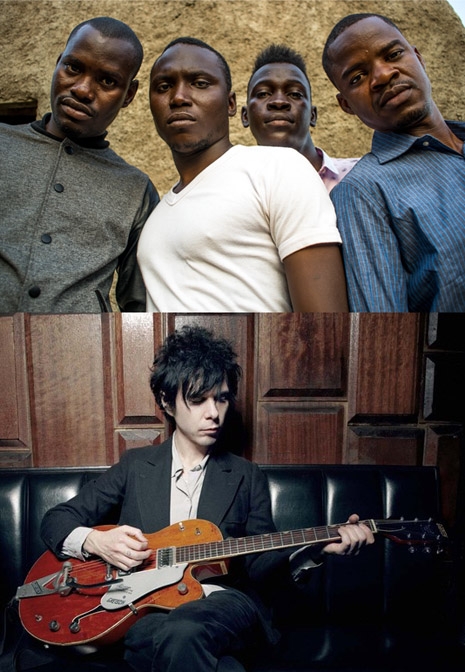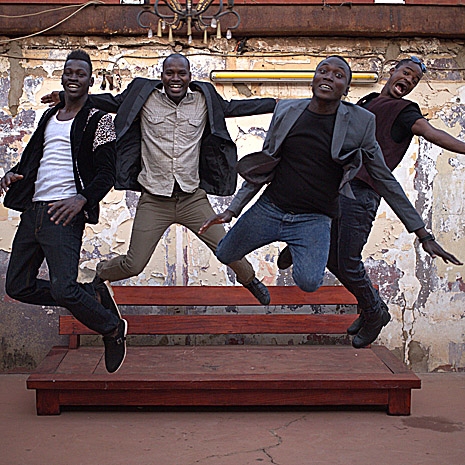
Individually, Nick Zinner and Justin Pearson have made significant contributions to the ongoing post-punk revival. Zinner, in the Yeah Yeah Yeahs, has edifyingly proffered everything from sparse, serrated blasts of underground dance punk to a pop disco anthem that ended up being performed on Glee—mashed up with Michael Jackson’s “Thriller,” no less. Pearson, in The Locust, has been a Godfather of the influential Powerviolence micro-genre, a disorienting and challenging chimera of brutish, back-to-basics hardcore and the reductive, mechanical textures of early ‘80s synth-pop.
Together, Zinner and Pearson have collaborated as members of Head Wound City, the band that melted faces as the openers on Savages’ 2016 tour. But more recently, as members of Planet B (along with Locust/HWC’s Gabe Seriban), they’ve collaborated on a cover of an altogether different and more rarefied post-punk icon—“Never Let Me Down Again” by Depeche Mode, one of the most successful electronic music groups in history, ranking alongside Kraftwerk and DEVO in sheer enormity of influence, and surely surpassing both in cultural reach.
“Never Let Me Down Again” is an unshakably dark heroin song that achieves a weird and poignant universality by never explicitly mentioning drugs, and was the lead track and first single from 1987’s Music For the Masses”, which, taken with its follow-up, 1990’s Violator, comprises the band’s high water mark in this scribe’s correct opinion. It’s ominous, beautiful, creepy, and euphoric, and it was a massively depressing track to release as a single to begin with, but Planet B’s version is a lo-fi screamer that significantly ups the ante on the song’s bleakness, stripping it of its drug-high euphoria and leaving in its place a harrowing withdrawal. They recorded it for Love Oakland, a compilation benefitting the Oakland Family Fund, which arose in the wake of last year’s tragic Ghost Ship fire, which wiped out a crucial DIY venue/incubator and took 36 lives. The comp mostly features the obscure artists associated with that scene—apart from Zinner and Pearson, the contributor you’re most likely to know is the Indo-Canadian garage/psych savant King Khan, but other tracks, like Tony Molina’s lovely acoustic instrumental “Fluff” and Naked Lights’ “Hyde,” a jagged gut-punch of a song that recalls Arab on Radar, are absolutely worth hearing. The whole thing is streaming and available for sale on Bandcamp, and Pearson took some time to talk to DM about it:
For Planet B the decision to cover “Never Let Me Down Again” was simple. Musically the song is timeless, and lyrically, it seemed fitting for the Love Oakland compilation. Most listeners of music can connect to certain songs and this one was relevant for all of us. Furthermore, the idea to have Nick Zinner featured on the track was a means to showcase our radical friendship, and the basic idea of community. Over all, the compilation is littered with friends and family, all coming together for a good cause, and ultimately to shed light on a situation that effects a lot of artists.
Listen after the jump…







